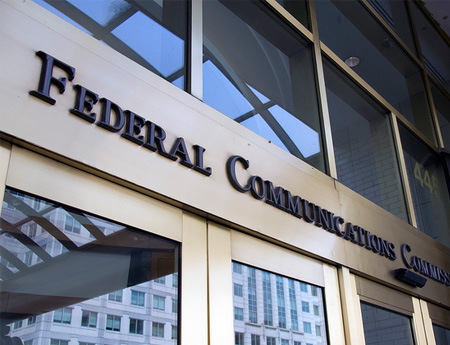Court Vacates FCC Third Party Contract Decision

The smarter way to stay on top of broadcasting and cable industry. Sign up below
You are now subscribed
Your newsletter sign-up was successful
Hundreds of outside parties will not get access to programming contracts and work products submitted to the FCC as part of its review of the AT&T/DirecTV merger.
A three-judge panel of the U.S. Court of Appeals for the D.C. Circuit has unamimously upheld programmers' challenge to the FCC's decision to do so.
"We find the Commission’s action both substantively and procedurally flawed," the court said in vacating the order.
"[B]y failing to explain why VPCI (Video Programing Contract Information) is a 'necessary link in a chain of evidence that will resolve an issue before the Commission,' the Commission has failed to overcome its—and Congress’s—presumption against disclosure of confidential information.”
The court said the issue boiled down to: "May the Commission disclose petitioners’ confidential information to third parties and may it do so on a timeline so swift as to effectively preclude judicial review?" The court concluded that the FCC had not justified why this confidential information needed to be disclosed, and was troubled by the FCC's race to judgment. "We share petitioners’ apprehension about a process that puts tremendous pressure on the Commission, the parties, and this court to get their ducks in a row in a short time."
The initial challenge also involved documents in the Comcast/Time Warner Cable merger, but that was mooted when the deal was withdrawn.
CBS, Viacom, Disney and the National Association of Broadcasters were among the lead programmers in the challenge to the FCC decision to make the documents available to third parties.
The smarter way to stay on top of broadcasting and cable industry. Sign up below
The decision means the FCC should be able to restart the clock on the AT&T/DirecTV deal.
In challenging the FCC, the programmers had taken issue with the FCC's decision to make hundreds of thousands of pages of documents available to hundreds of third parties. The FCC had argued that there was a compelling public interest in doing so and that protective orders would sufficiently protect the information.
The Media Bureau decided to make them available under those protective orders and, after programmers challenged that decision, a politically divided commission took only five days to review and uphold the Media Bureau.
Programmers appealed to the Court, which stayed the FCC decision pending the court's decision.
The parties to the two mergers did not support the programmer challenge since it could potentially—and did—slow the deal-vetting process (the FCC stopped the clock on the merger review following the Feb. 20 oral arguments).
Judges David Tatel, Sri Srinivasan, and Robert Wilkins heard the case. The the three-judge panel decision can be appealed to the full court if programmers choose.
"We are studying the opinion now and considering the options available to the commission," said an FCC spokesperson, who declined to comment on whether or not the FCC's informal 180-day shot clock on the deal would be restarted today (May 8).
While the decision means the contracts cannot be made public under the FCC's previous order, it could theoretically come up with a new one.
The court said the FCC "made no effort to explain how disclosure of VPCI to any and every qualifying entity that might file a comment in this proceeding is necessary to the process," but said it could take another crack at it, which is one of the options the FCC may be contemplating. "When it reconsiders its disclosure order, the Commission is free to clarify its current policy or to amend it," said the court. "It may, for instance, explain who must make the required 'persuasive showing'; what must be a 'necessary link in a chain of evidence'—the confidential information itself or third-party comments on it; and whether “necessity” is the standard at all."
Contributing editor John Eggerton has been an editor and/or writer on media regulation, legislation and policy for over four decades, including covering the FCC, FTC, Congress, the major media trade associations, and the federal courts. In addition to Multichannel News and Broadcasting + Cable, his work has appeared in Radio World, TV Technology, TV Fax, This Week in Consumer Electronics, Variety and the Encyclopedia Britannica.

